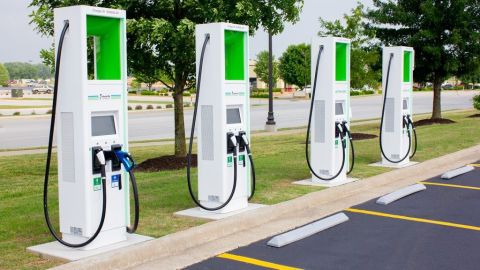Global passenger xEV battery market grows 40% in 2023
The global battery market for passenger xEVs (battery electric vehicles, plug-in hybrid electric vehicles, and hybrid electric vehicles) experienced remarkable growth in 2023, surging 40 per cent year-over-year. As per stats from Adamas Intelligence, approximately 689.2 gigawatt-hours (GWh) of batteries were deployed globally in newly sold passenger xEVs last year. This substantial surge highlights the rapid expansion of the EV market, with all-electric cars leading the charge followed by plug-in hybrid vehicles (PHEVs). While non-rechargeable hybrids also contributed to the total, their impact was relatively smaller because of their typically smaller battery packs.
The remarkable growth in passenger xEV battery market was propelled by both record vehicle sales and an increase in the average battery capacity of vehicles.
The growth course of the battery market shows no signs of deceleration, with projections indicating sustained expansion towards even higher records. However, reaching the milestone of 1 terawatt-hour (approx. 1,000 GWh) in a single year remains indeterminate, in spite of the upward trend.
Notably, the volume of battery capacity deployed last year accounted for roughly 37 per cent of all battery capacity ever deployed, which underscores the significant strides made within the EV industry in a relatively short period.
Among the horde of brands that contributed to the market, merely 16 managed to exceed 10 GWh of battery deployment. American electric car pioneer Tesla Motors and Chinese manufacturer BYD Co. Ltd. emerged as the frontrunners, surpassing 100 GWh each. Tesla's deployment reached 132.1 GWh, representing a 37 per cent surge from the preceding year; while BYD achieved 101.6 GWh, in spite of selling more cars, primarily PHEVs.
The list of other notable brands includes GAC Aion, Volkswagen, Hyundai, Kia, Audi, Volvo, BMW, Mercedes-Benz, Li Auto, Ford, Zeekr, XPeng, NIO and Toyota, with each experiencing varying degrees of growth in battery deployment. Chinese automaker Li Auto enjoyed a significant surge, nearly tripling its battery deployment, thanks to the success of its extended-range electric vehicles (EREVs). Similarly, Japanese automobile giant Toyota doubled its result, indicating a promising trajectory for its growth in the EV market. As the global EV market continues to evolve, these insights into battery deployment trends provide valuable foresight into the future of sustainable transportation.
Propelled by groundbreaking advancements in battery technology and a surging demand among consumers, the global automotive industry is poised for an electrifying revolution, promising a future brimmed with sustainable mobility.
